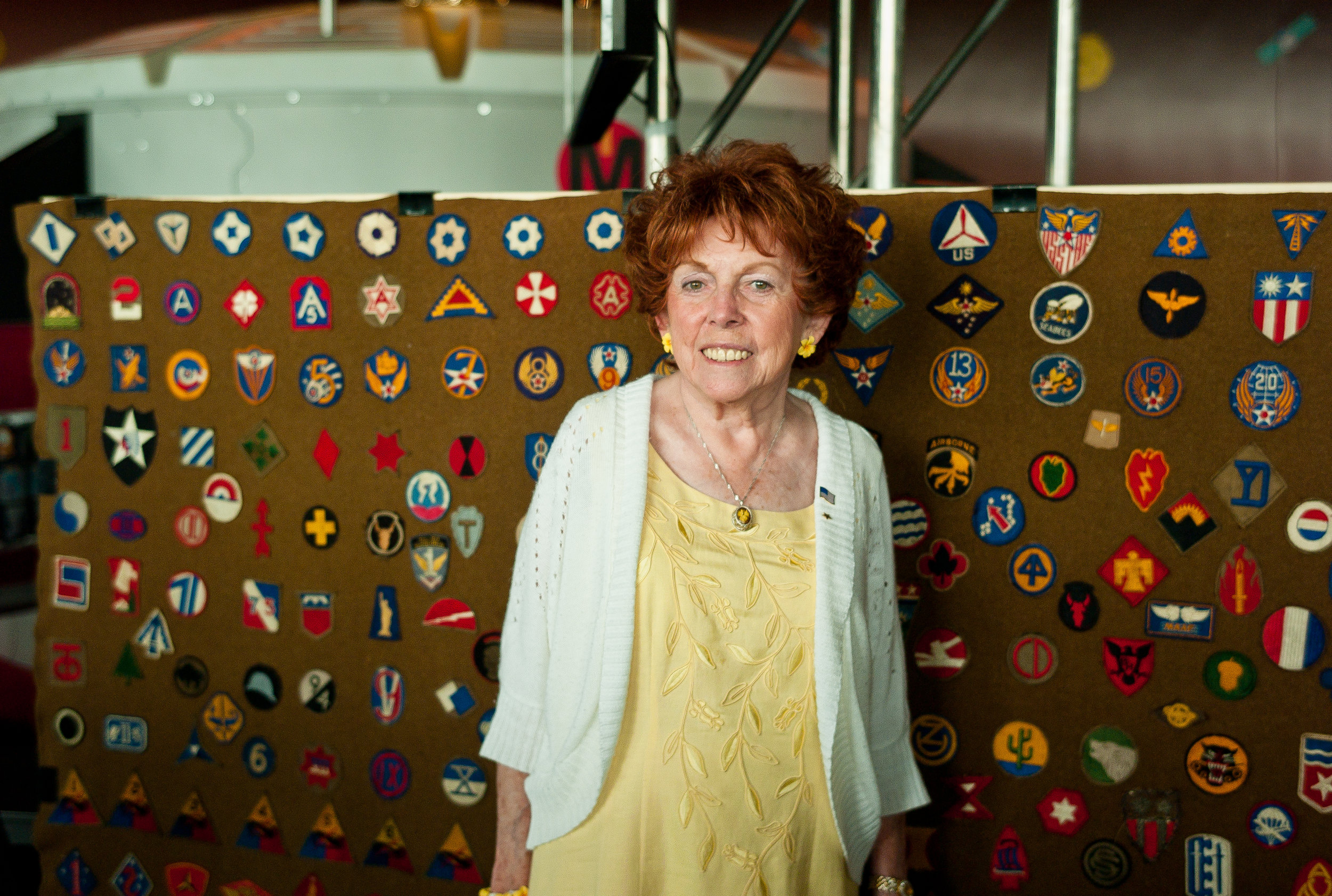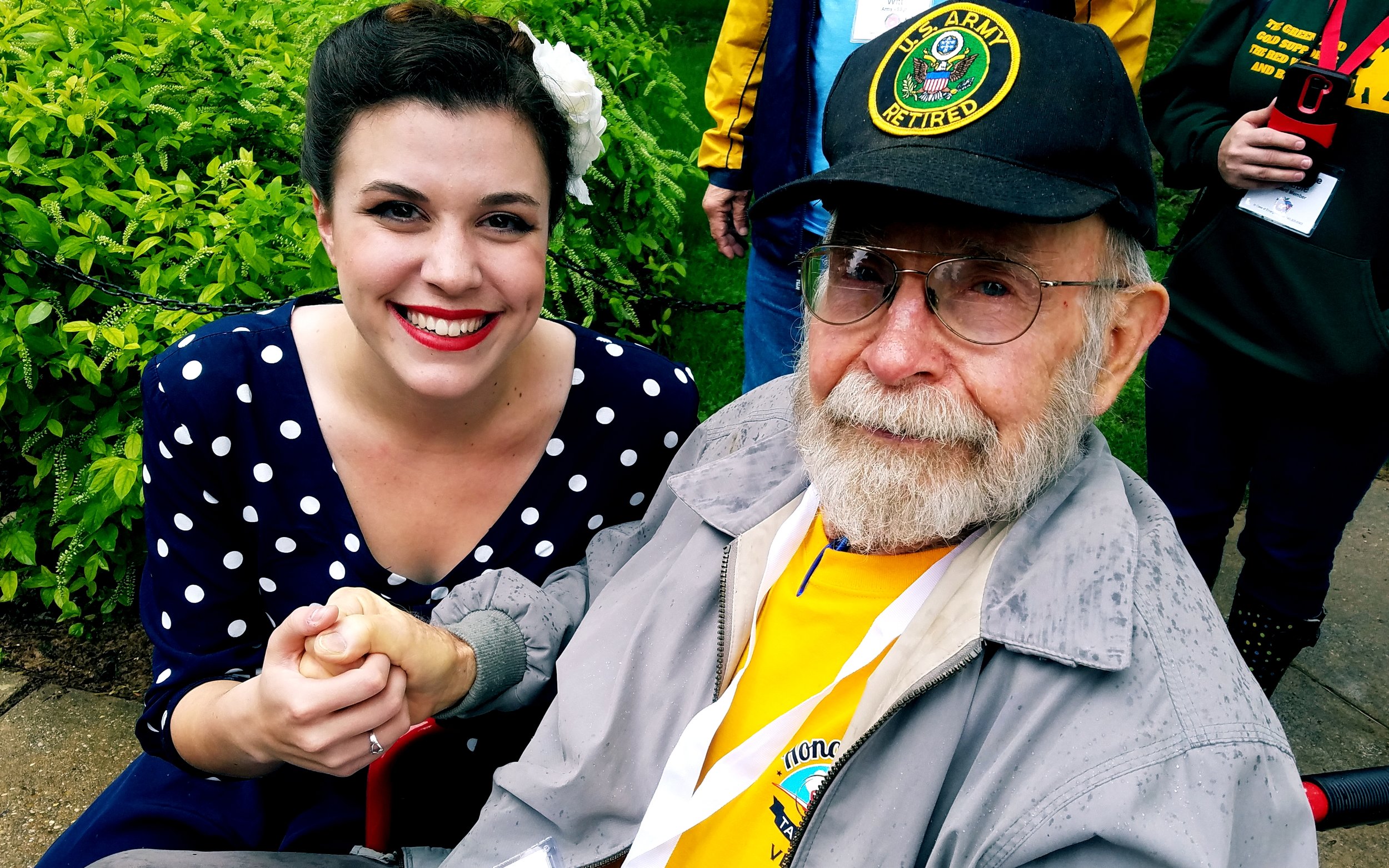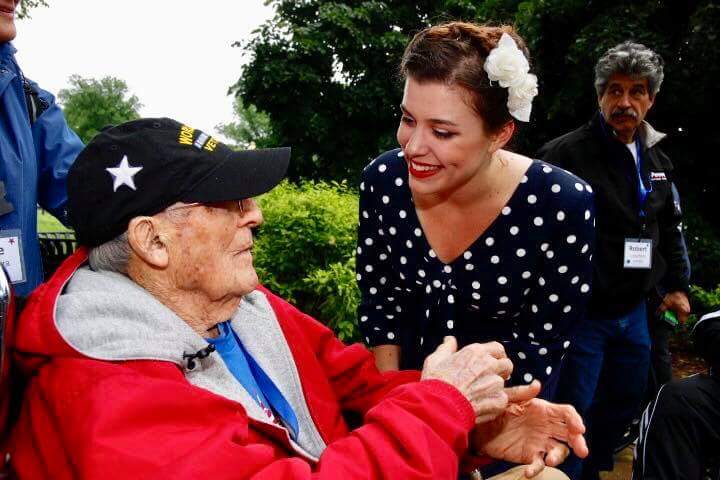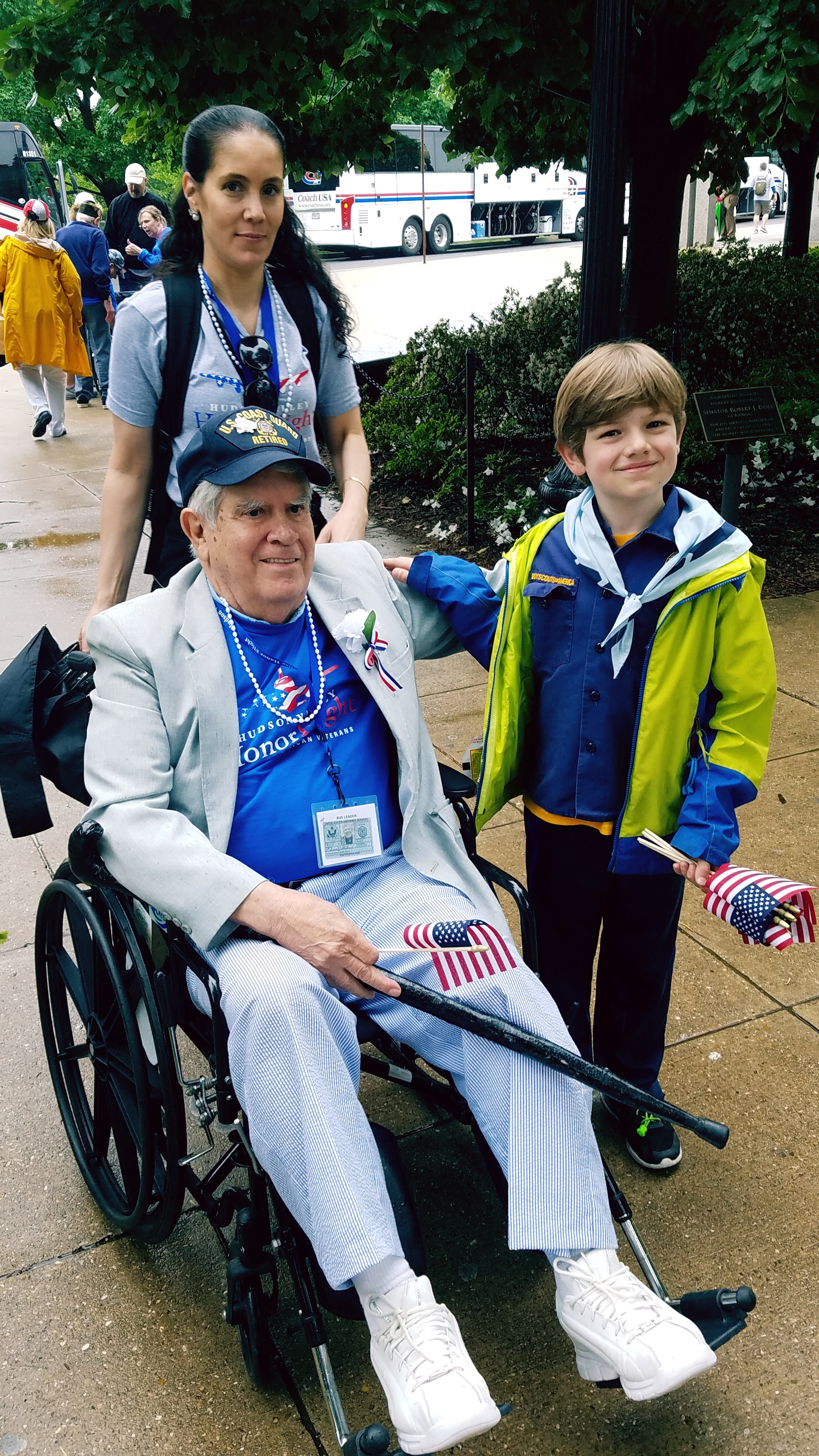A Short Story for Easter
/Easter was this past Sunday, but I wanted to share a little story I learned a few years back from my friend, the indefatigable Fiske Hanley. Fiske passed away last year at the age of 100. Anyone who ever came in contact with him, knows he was truly a legend. Still carrying gnarly physical reminders of his time under the Japanese Kempeitai, he was unflagging until the end and more often than not would be seen wearing his original jacket from the war (though perhaps unbuttoned to make up for the years and life he had experienced).
There are so many stories I could relate from my visits with Fiske… including some pretty humorous moments when we both traveled to Iwo Jima in 2015 for the 70th anniversary. But for today, here is a little piece I wrote in 2018 following a visit to his home in Fort Worth, Texas. It’s a simple story, but not an Easter has passed since that I don’t think of it.
Today Christian Day
A small, bent framed man entered a dank prison cell in Tokyo, Japan. He was carrying a few morsels of food for the bruised and bloodied prisoner within.
"You Christian?" He asked in broken English, placing the food on the ground.
"Yes." Answered the American flyboy, turned POW.
"Me Christian." Said the little man pointing to himself. "Today Christian day."
The American didn't understand. "What do you mean?"
"Today Christian day." The man repeated.
The American shook his head, then it struck home. “Christian Day.” April was coming Easter was April 1st. It must be Easter.
Last week I had the wonderful privilege of spending the afternoon with my fabulous and rugged friend, World War Two veteran and Japanese POW, Fiske Hanley. Mr. Hanley is amazing. At 98, he just goes and goes and goes. Showing me his calendar, I couldn't help but notice it was all marked up in red!
WWII B-29 Bomber
During the war, he served in the Army Air Corps flying the spiffy new B-29 bombers. A couple of years ago, the girls and I were attending an Iwo Jima reunion out in Wichita Falls, TX. The first day there we ran into Mr. Hanley. "What are you doing here?" We asked him. "You aren't a Marine."
"Nope." He laughed. "But I'm an honorary Marine." Then he pulled out a certificate from his jacket and said, "I bombed Iwo Jima a month before the Marines landed... most of our bombs missed the target and landed on the beaches and in the water. We killed a lotta fish. But, we did one good thing. The bombs that hit the beach created ready-made foxholes for the Marines when they landed in February. So you see, they made me an Honorary 'Marine Foxhole Builder.'" We all had a good laugh over this.
Little he know at the time of the bombings on Iwo Jima, that within just 2 short months, his entire war would take a drastic change.
On March 27, 1945, Fiske Hanley's B-29 was shot down over Japan. He was forced to bail out and parachute onto Japanese soil. Out of his entire 10-man crew, just one other managed to parachute to safety.
It was only his 7th mission.
The story that follows of his capture and subsequent torture by the Japanese as a "Special War Criminal" is one of amazing courage.
Landing in a rice field, Fiske was met by a furious mob of Japanese civilians with farm tools and bamboo spears. He barely escaped with his life when the local police arrived and put the two Americans in a back of a truck. Then they headed to Tokyo for interrogation by the Japanese version of the Gestapo, the Kempeitai.
As an American B-29 Bomber, Fiske was considered by the Japanese to be a civilian killer and a war criminal. From then on he would receive "Special Treatment." This included regular beatings, opening his wounds so they could not heal, starvation, and solitary confinement. By the time he was liberated in August of 1945, Fiske had dropped from a healthy 175 pounds to a mere 96.
When I visited him last week, he related a remarkable story to me.
A few days after his capture, Fiske was lying in a single cell. He was in pain from untreated wounds he had received from his crash. Everything he had heard about the Japanese treatment of POWs told him to expect the worst. Considering the welcoming committee that had greeted his landing, the rumors weren't far from the truth.
The door opened, and a "Peon" came in carrying a stipend of food for Fiske. "I call him a peon," he told me, "Because he was the lowest of the low in Japanese society. Nobody cared about him."
The little man spoke in a whisper, "You Christian?"
"Yes." Said Fiske.
"Me Christian." Said the little man. "Today Christian day."
Fiske didn't understand. "What do you mean?"
"Today Christian day." The man repeated.
He still didn't understand, and the man repeated the phrase a few more times. Then it struck him, Easter was April 1st. It must be Easter.
Over the next few days of his captivity there, he found out that the little man's family had been converted by Christian missionaries a few generations back. But because of their social status (literally at the bottom of the totem pole), no one ever bothered to enforce the religion of the land on this simple Japanese family.
Fiske was only held at that prison for a short time, but all the while he was there, the little Japanese man brought him what ever extra things he could sneak in to the cell, helping to keep him alive.
"Easter is on April 1st this year." He added, 73 years later.
As he told me this story, I couldn't help wondering about the missionaries. The seed they had planted generations ago would continue to grow quietly, until one day it would have direct (and possibly live-saving) impact on an American POW in 1945.
You never know what lives you will touch down the road... people who will not be born until you are long passed.
Liberation! Fiske is Far left, behind the guy in the white shorts.
Mr. Hanley would spend 6 months as a "Special" POW," enduring unending hardships... but this brief encounter was a spark of hope amidst all the darkness.



































